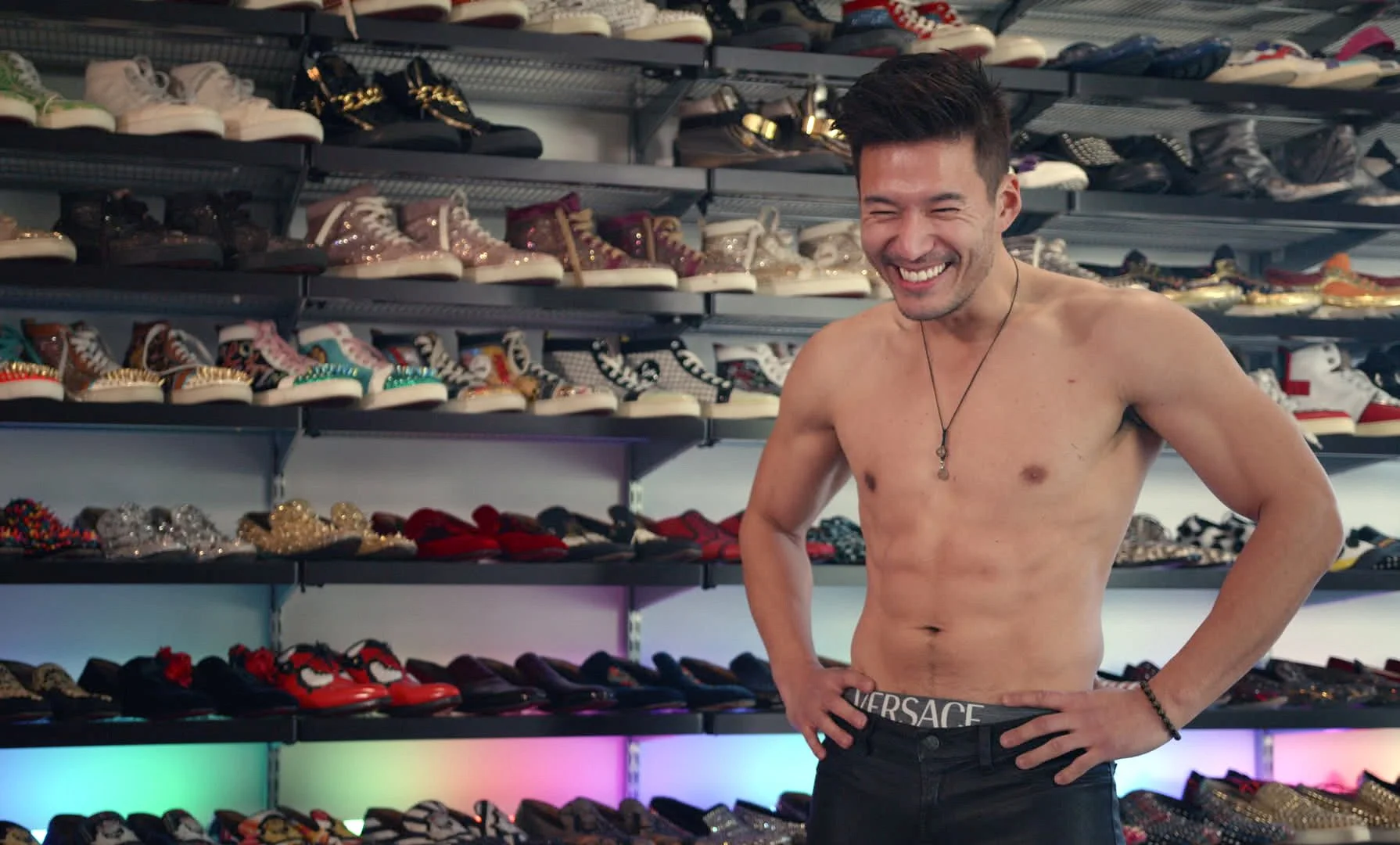‘Bling Empire’s’ Kevin Kreider Wants to Redefine Asian Masculinity
The model and actor defies the stereotypical image of the Asian man that is often seen in mainstream media.
Kevin Kreider in Bling Empire. Photo: Netflix.
If there was a drinking game for the amount of times Kevin Kreider is shirtless on Bling Empire, we’d all be drunk after binge-watching the Netflix reality series, which follows a group of wildly wealthy Asian Americans in L.A..
Kreider, a Korean American model and actor who, unlike his castmates, isn’t used to the affluent life, isn’t shy when it comes to showing off his six-pack, whether on-screen or on social media. The image he portrays defies the stereotypical image of the Asian man that is often seen in mainstream media—so much so that his photos and videos are often deemed “too hot” for the feed (true story: a repost on The RepresentASIAN Project‘s Instagram was taken down for “violating community guidelines.” Welp.)
Nobody:
— Netflix (@netflix) January 19, 2021
Not a soul in the world:
Kevin on Bling Empire: pic.twitter.com/0n57qHQRxh
“I think it’s uncomfortable for [people] to see an Asian guy being sexualized… because they’re not used to seeing that,” Kevin tells The RepresentASIAN Project, adding that his own posts have been reported and taken down from TikTok and Instagram. “The moment that an Asian guy takes his shirt off and is being sexy or expressing his sexuality, [it’s like] ‘We gotta take that down.'”
Part of the reason Kevin is so adamant about redefining Asian masculinity is due to the struggles he faced with his Korean identity in the past, especially having been adopted by a white family.
“I never wanted to be Asian growing up, I always wanted to be white,” he says in the show.
“I didn’t even know I was Asian until some white kid told me and did so by doing the slanted eyes,” he recalls. “My mom would always tell me, ‘God made you this way,’ and I went with that, but she had no idea kids were going to treat me that way for looking different. So I felt very alone growing up because my family couldn’t understand and I also didn’t have the articulation to label the experience and tell them how I was feeling.”
As Kevin got older and continued to keep his feelings to himself, the microaggressions he experienced regularly made him feel angrier.
“I thought this was my problem to bear alone. I felt like I had the whole world of racism on my shoulders and this was only happening to me…until I got older and actually saw other people going through the same thing,” he says.
To Kevin, the turning point that led him to become proud of his Korean identity occurred when he met pro basketball player, Jeremy Lin, at a game in Philadelphia. When given the opportunity to meet Lin, Kevin asked, “Have you ever gotten the stereotype that Asian guys aren’t sexy?”
When Lin responded yes, Kevin not only recognized that he wasn’t alone in his experience, he also realized the importance of speaking openly about the issues Asian men face.
“It just made me realize, ‘Oh, it’s not just my problem. It’s a thing that happens to [many] Asian males,” Kreider says. “Jeremy could have easily said, ‘Don’t think about it’ or ‘Bringing that up makes us more emasculated.’ But he said the fact that it’s not talked about and it’s been deemed toxic to talk about is why we need to talk about it.
“I found that very validating, and I started to feel more comfortable talking about it, especially to other Asian men. And so I started to use [my experience] to help other Asian guys out.”
It’s important to note that a six-pack isn’t necessarily what Kreider considers the picture of masculinity (though, he says it doesn’t hurt). To Kevin, masculinity “isn’t a traditional route.”
“It’s being vulnerable, confident in yourself, always self-improving, and working on the inner as well as the outer,” he explains.
Kevin’s vulnerability was often showcased in Bling Empire (though, not as many times as his abs), particularly when it came to the search of his birth parents in Korea. After hitting a wall in the search, Kevin decided to undergo hypnotherapy for more clarity on his birth family. The six-minute scene is pretty powerful—Kevin breaks down and sobs as memories from early childhood emerge during the session—and according to Kreider, producers were initially hesitant to put it in the final cut.
Kevin Kreider and Kelly Mi Li in Bling Empire. Photo: Netflix.
“It was a very, very powerful moment for me and even the producers were saying, ‘You know, it’s hard to show this because it’s a really hard moment and we’re not sure how people will feel watching something like that,” he says. “And I was like, ‘Look, you guys do you, but I know what I went through and I think it could help other people since Korean adoptees usually don’t have a platform to share their experiences on this. So I was really pleased to see that they kept it because I wanted people to see the different sides of Asian men.”
The hypnosis scene and Kevin’s adoption story, along with the other difficult issues touched upon in Bling Empire (Christine Chu’s fertility troubles, Kelly Mi Li and her ex-boyfriend, Andrew Gray’s tumultuous relationship, and DJ Kim Lee’s parental problems), are what really make the show special, according to Kreider.
“The name doesn’t represent everything that’s in it,” he says, nodding to critics of the show who were quick to judge Bling Empire for not being representative of the Asian community as a whole. “There are stories of loss, identity, friendships and family and navigating a new life and a new space. [To] every single critic saying it’s bad representation and stereotyping, I wholeheartedly disagree. Because [a stereotypical Asian trait] is not showing mental health. Not showing vulnerabilities, not sharing past experiences, not crying, not being hyper-sexualized men. And that’s what we [did with this show].”
While Kevin (and the rest of us) anxiously wait to hear news about a season 2 (pretty please, Netflix?), Kreider plans on getting back into acting and continuing to represent that Asian male that he would like to see portrayed in mainstream media. He’s also hoping to go back to Seoul, Korea to learn more about his birth parents and doing some “inner work” to “explore [his] relationship side.”
“There’s some sparks between people that I’ve met recently that I’d like to explore more,” he slyly reveals.
Bling Empire is streaming now on Netflix.
Disclaimer: The author of this post has a professional affiliation with Netflix, however, this piece is not sponsored or commissioned by Netflix.


